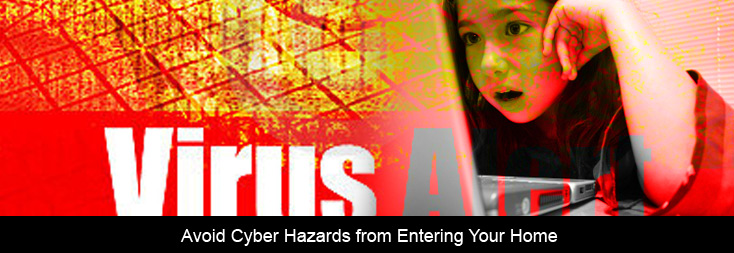Avoid Cyber Hazards from Entering Your Home
Johannesburg, South Africa – July 2012 –– ‘Back in the day’ when you were a child, can you remember being exposed to unlimited amounts of pornography, bullies or content inappropriate for your age? The answer will more than likely be ‘no’, unless it was from a Hustler magazine, within peer groups or you managed to hide behind a corner as your parents watched an age restricted film later in the evening. The point is that your parents had the option to remove these temptations from sight, or would be able to discuss issues within peer or social circles with your school or friends’ parents.
“Although parents encourage their children to be open and honest about what they’re experiencing online, and claim to know what content they are viewing, teenagers are still viewing indecent videos and imagery unsuitable for their age.” says Mike Fisher, Managing Director of HCTech, local distributor of ProtectSoft – a world leading software provider in protection software that allows you to supervise your children’s online activity on windows, mac and mobile devices. “Although you cannot restrict your children from using online portals for school projects and social interaction, you can ensure that your children are safe and protected from the online predators, inappropriate content and bullies; we need to adopt the ‘prevention is certainly better than cure’ philosophy,” continued Fisher.
Arthur Goldstruck, MD of World Wide Worx, a local independent research and strategy organisation is currently working on a research project within private schools of which he already has over 600 respondents. Of these, 25% are being bullied either via the internet or their mobile devices, more than 33% witness bullying via these channels and a large 66% of the respondents are aware of their friends being bullied. The most common applications with which these activities are taking place are BBM and Facebook however; WhatsApp and sms platforms are consistently increasing.
Based on the Norton Online Family Report from 2011* conducted by Norton Symantec within 24 countries including South Africa, more than half the respondents were children and of these, 58% have experienced something negative online. 12% admit to having viewed content on adult websites without their parents knowing and 40% say they stop what they’re doing online when their parents are watching them. In South Africa, 78% of kids said that they have had a negative experience while online, with 61% reporting a serious negative experience, such as receiving inappropriate pictures from strangers, being bullied or becoming the victim of cybercrime.*
From the Survey, all negative experiences include one or more of the following:
- Being bullied online on a computer
- Being bullied via cell/mobile phone
- An adult I don’t know online tried to get me to meet them in the real world
- Another child or teenager I don’t know online tried to get me to meet them in the real world
- An adult tried to get me to do something online I thought was wrong
- I received sexually suggestive or nude images of someone I know on my cell/mobile phone
- Someone has hacked into my social networking profile and pretended to be me
- I have seen very violent images, videos or games online
The biggest concerns for parents (between 44% and 47% of the survey participants) are that their children will give out too much personal information, fear that their children will be interacting with inappropriate people and that they will be exposed to indecent information.
“People must understand our technology is not used to monitor your children, but rather specifically to monitor the uncontrolled internet,” said Fisher.
According to research conducted in the United States**, the psychological and emotional outcomes of cyber bullying are similar to real-life bullying outcomes, except for the reality that with cyber bullying there is often no escape. “School ends at 1, 2 or 3 p.m., while the Internet is available all the time, just as we would have no problem addressing an issue with a teacher at school about one of our children being bullied, we need to be able to protect our children in online environments too. Ironically, this is a technology created problem that can effectively only be solved with technology,” concluded Fisher.
For more information on ProtectSoft and their Spector Pro, eBlaster and eBlaster mobile products to help protect your children from online predators, sexting or viewing inappropriate content , visit www.protectsoft.co.za or contact HCTech on +27 (0) 11 656 4950.
The ProtectSoft software is available for purchase directly from the website www.protectsoft.co.za or at an Incredible Connection stores countrywide at a starting price of R 599.99.
For more information:
*Norton Online Family Report http://us.norton.com/cybercrimereport/promo
**Statistics pulled from http://www.dosomething.org/tipsandtools/11-facts-about-cyber-bullying




